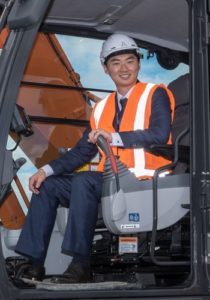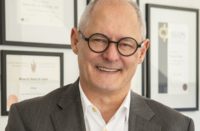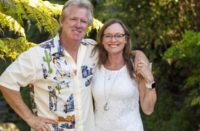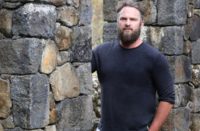 Breaking new ground in business is not so easy, even for veterans. And yet, aged just 26, Charles Ma is already no stranger to groundbreaking.
Breaking new ground in business is not so easy, even for veterans. And yet, aged just 26, Charles Ma is already no stranger to groundbreaking.
This month, we pose a few questions to this Auckland-born entrepreneur about his new housing development (Auranga, near Drury, Auckland) and views on the SuperCity’s housing shortage.
– What developments have you led and are any more in the planning stages?
I am the managing director of Sugartree a 650 plus apartment complex in Auckland’s CBD, project director for a 400-plus section suburban development at Flat Bush and 30-plus lifestyle rural sections in Whitford. However, my focus is entirely on Auranga [in southern Auckland] for the moment. My dream is to make it the best urban development in New Zealand and quite possibly one that will be internationally recognised.
– You graduated from the University of Auckland at end of 2014. Just two years on, you’re the MD of a multi-billion dollar project portfolio. How did such a rapid fire rise up the corporate ladder come about?
‘Pursue what is worthy, and don’t settle for less’ – this is my motto. I have an unwavering Christian belief in the potential of good people, which is why I’ve surrounded myself with good people – a community of people really – who have all shaped who I am today.
– What does a qualified engineer (particularly one so young) really know about how people want to live their lives?
While civil engineering taught me how to build buildings and bridges, I believe there is an inherent need for people to feel good, to feel worthy and feel that they belong – these are the basics for a satisfying life. I am passionate about creating great places that give people choices and opportunities for great living.
– Are central and local government doing enough to support developers in resolving the housing shortage, and could Auckland become ‘the world’s most liveable city’ or is that just meaningless jargon?
The Special Housing legislation has been significant in helping increase housing, but the Government, Council, CCOs [Council Controlled Organisations] and private developers need to work together to make sure quality developments are supported by quality infrastructure.
With the right people doing the right things collectively, I think becoming the world’s most liveable city is achievable and something to which we should all aspire.
– Is Auckland becoming too built up, or do we need to get used to apartment living, leaving the quarter acre dream behind?
Not only is Auckland New Zealand’s largest city, it’s also growing into a cosmopolitan city on an international scale. Unfortunately, density is just one of the realities of growth in all large cities.
I think it’s a reality of modern, urban living in all large cities, but that doesn’t mean quality needs to be compromised. Apartment living can and should be of a high quality.
– There’s been a lot of talk about ‘affordable’ homes. What price would you say is affordable to most and what proportion of the homes your developments will be affordable?
Under the legislation, 10 percent of SHA [Special Housing Area] homes must be affordable, but we’ve decided to increase that by 50 percent, so more than 200 homes at Auranga [near Drury] will be affordable. Affordability is defined as 75 percent of the Auckland median price as published in September of the year resource consent is sought. This means the value of our affordable homes will change, but our first affordable homes will be priced in the $580,000 region.
– How important is it to balance green spaces and public facilities with housing and businesses?
Extremely important. At Auranga, we’re providing for parks, reserves, wetland areas and access to the sports park and water’s edge, as well as paths, boardwalks, and cycleways, so people can easily experience the outdoors, get fresh air, exercise, meet people and have places to enjoy and relax. Auranga is way more than just rows of bricks and mortar. It’s about people and a community with a heart.
– I understand you support Auckland Uni’s Dean’s Leadership Programme. What does this involve and how important is it for successful people to ‘give back’?
My wife and I sponsor the Auckland University Engineering School and their efforts to develop leaders of tomorrow. I strongly believe in the leadership potential of the next generation and have been involved in mentoring engineering students through their internships as well as contributing to the planning of the Dean’s program and speaking at university events.
One of the most important lessons my mum taught me was that it is more blessed to give than to receive. We live in a society where separation, loneliness and brokenness are common. I want to give back in a way that reconnects people and provides opportunities to reach our potential as individuals and as communities. Together, people can be stronger and will achieve more.
– If you could be Minister of Housing for one day, what would you do first and why?
I would keep extending the SHA legislation and get council to continue with the housing accord. However, I would be more discerning about who has the privilege of that legislation so developments are of a higher standard across the board.
– If you could invite any three people to dinner (living or dead) who and why?
I’ve thought about this a lot. I’ve narrowed it down to Elon Musk of SpaceX and Tesla Motors – his vision is changing the world and humanity, Microsoft founder, Bill Gates – his business and philanthropic endeavours are legendary, and Martin Luther because I admire his devotion to truth and theology.



